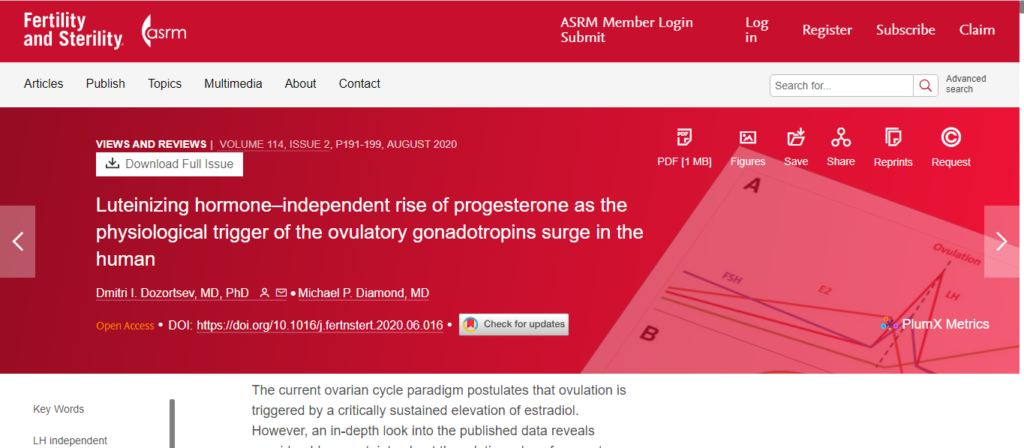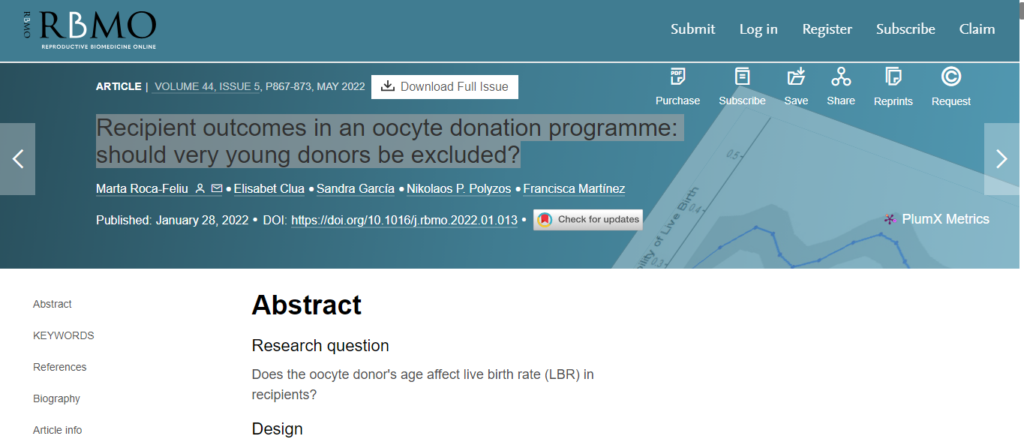If you are hoping to conceive later in life, understanding the stages of menopause will help you plan your fertility journey.
All women go through menopause at some point in their lives — usually between their mid-forties and mid-fifties. We all know about menopause, but few of us are aware of how complex the relationship between menopause and fertility can be. For women looking to conceive later in life, keeping track of the different stages of menopause and how they impact fertility can be an essential step in family planning.
What Is Menopause?
Menopause is the stage of a woman’s life when she no longer ovulates. The North American Menopause Society (NAMS) defines menopause as the point at which a woman goes twelve consecutive months without menstruating.
The period in which women experience some symptoms of menopause without having gone the full twelve months without a period is called perimenopause. For some women, the perimenopause stage can last over six years.
Understanding the difference between menopause and perimenopause is important to gauging fertility. Technically, it is still possible to conceive naturally, whether intentionally or accidentally, until a woman truly reaches menopause. Once a woman is in the postmenopause stage however, the only way she can become pregnant is through in vitro fertilization (IVF), using either her frozen egg or a donor egg.
The Risks of Getting Pregnant Close to Menopause
Although it is possible to get pregnant during perimenopause, trying to conceive during this period without the help of a fertility specialist carries many risks.
Women are born with one to two million eggs, but by the time they approach menopause, there are only around 100 eggs remaining. Typically, the quality of the eggs have also deteriorated. The unfortunate reality is that older eggs have a greater risk of chromosomal abnormalities, increasing the likelihood of the conditions like Down syndrome. The risk of miscarriage also increases significantly as a woman ages.
All this means that if you are hoping to conceive during the perimenopausal stage, it is critical that you work with a medical professional to plan your pregnancy. You may also consider undergoing genetic testing in order to evaluate the increased risk of chromosomal abnormalities and other complications.
Planning For Menopause
When it comes to planning for menopause, there are two key points to keep in mind. You will not be able to conceive naturally once you reach menopause, and pregnancies during the perimenopausal stage carry a wide array of health risks for both the baby and the mother.
Remember that perimenopause typically begins when a woman is in her mid-forties. That means that if you are over age 35 and are interested in having a child, you should begin taking concrete steps, beginning with reaching out to a fertility specialist.
If you think you will want to have a child later in life, consider freezing your eggs early. IVF has been shown to be successful post menopause if eggs were frozen beforehand. Unfortunately, the risk of complications is still greater when starting IVF post-menopause compared to before menopause.
The process is complex, but you can have a successful pregnancy after menopause. Make sure you reach out to a fertility specialist early to plan out your journey and improve your chances for a healthy pregnancy.
If you are over age 35, or if you think you will want to conceive later in life, reach out to a fertility specialist as soon as possible so that you are prepared. Here at the Advanced Fertility Clinic of Texas, we are ready to help you plan your fertility journey, whether you are looking to start now or simply preparing for the future.



